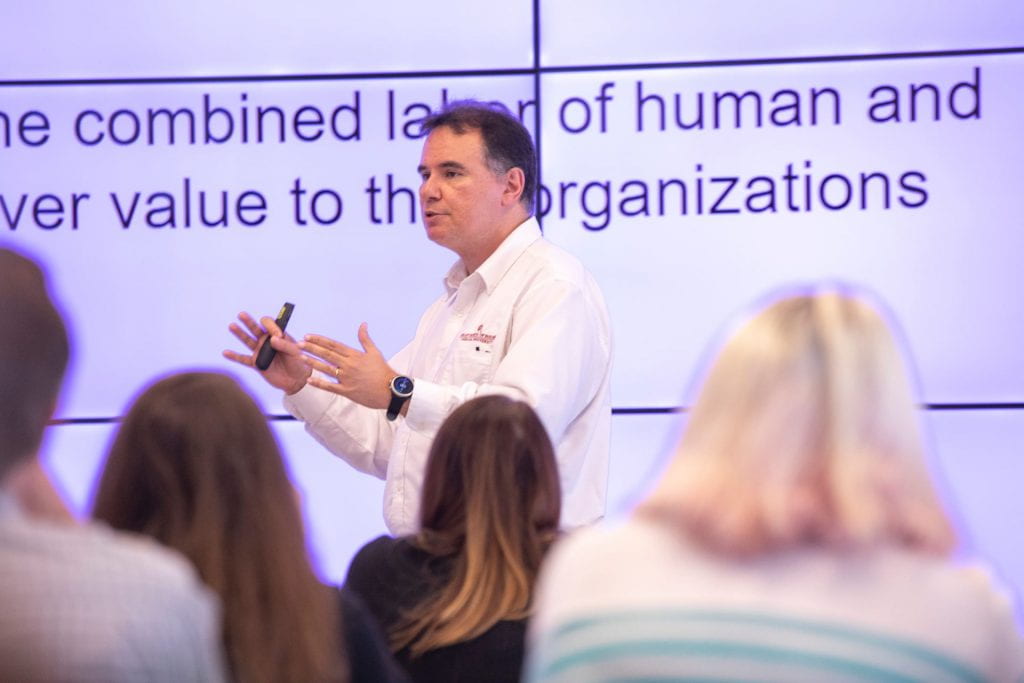
The pandemic made many people in academia realize how challenging it is to teach online effectively. Most college instructors did not understand the amount of preparation that goes into every week of online classes.
It all starts with the topic selection for the course. If you are teaching technology topics like I do, renewing the content of each course is an annual ritual. Once the topic is selected, it is time to decide what exactly goes in the pre-recorded lectures and what is better covered during the live session. Each of those has different challenges.
For the pre-recorded lectures, my target is to summarize the main frameworks and theoretical content in a set of short videos, each lasting between seven and 17 minutes, so that students can consume those at their own pace. Over the years, I have spent a lot of time with video editing tools to edit my own videos. The result is a “lesson” that conveys as much (or more) content as one would receive in a classroom but packaged in smaller bites, supported by review questions to emphasize the main concepts.
Those videos are complemented with the live session. All my live sessions involve either exercises (for more technical classes) or discussions (for managerial topics). I am a big believer in learning by doing, even when “doing” involves a solid discussion among group members about the applications of concepts and technologies in their own organizations. Each live lesson is planned to have students spending as much time as possible in exercises (for example, in MongoDB when I am teaching Big Data Technologies) or creating a dynamic whiteboard in Mural. Each task or discussion topic is timed to maximize the opportunity to get as much discussion done as possible so that students can learn from each other.
In the end of the live sessions, I always reserve some time for a debriefing so that everybody can take away back to his/her own organization the main concepts that they can implement in their own work. That is also the point when I try to introduce some of the latest news and applications. With technology, the world changes at such a fast pace than even videos recorded just weeks before might be slightly outdated by the time the class takes place. So, the end of the class is when we have a chance to discuss things that might have literally happened earlier in the morning.
My main philosophy is that in an online environment, learning should take place through a variety of mechanisms and from a variety of sources. The combination of the more theoretical videos with the more applied live sessions allows students to solidify concepts and understand their applications. Plus, that combination also allows students to learn from me but and from each other.
I strongly believe that students are in charge of their own learning and I should take on the role of an expert guide and facilitator. The is only possible because of all the work that goes into planning each week of online classes.
Alex Lopes is the Clinical Professor and Grant Thornton Scholar. He currently teaches S596 (Digital Technology and Innovation) in the Kelley Direct MBA core. As well as T514 (Business Capabilities for the Digital Future) and T501 (Big Data Technologies) as electives.